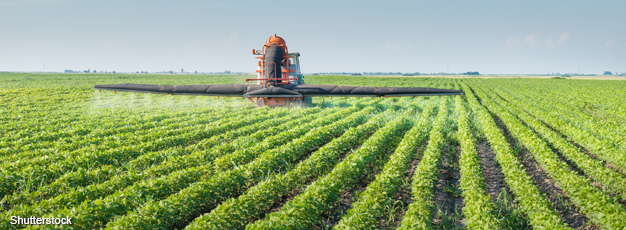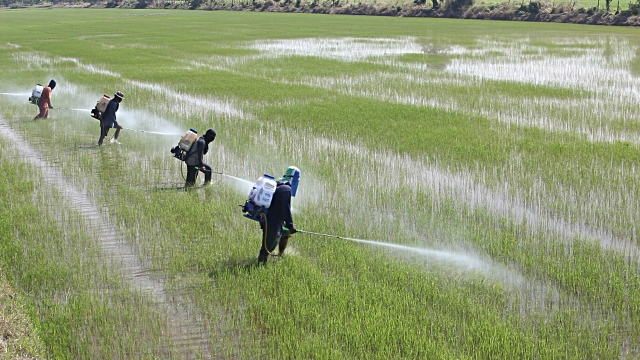


As the use of herbicides, insecticides, neonicotinoids and other types of pesticides increase throughout the world, many people turn a blind eye to the possible side effects of using these chemicals. The world's opinion about pesticides has been revolved around an ignorant idea that pesticides only target different kinds of pests, without having negative side effects on the environment.
The problem with pesticides today is not what they do by killing the pests, it's the fact that pesticides have spread to groundwater, the air we breathe, and the food we eat. Through spreading, they can lead to chemical poisoning in animals, while harming grassland, forest, marine and freshwater ecosystems.
The World Health Organization, an agency of the United Nations concerned with international public health, states that pesticide poisoning has accounted for about 20,000 deaths per year.
Pesticide residue remains in the food humans eat today, and it brings a high risk of pesticide poisoning which creates numerous dysfunctions in the nervous system in the human body.
The US National Library of Medicine, the largest medical library in the world, states that pesticides used in industrial agriculture are associated with elevated cancer risks for workers who use pesticides, and consumers who eat food that has been sprayed with pesticides.
Pesticides used in agriculture enhance risks of endocrine disruption and reproductive dysfunction. Reproductive dysfunctions limits sexual activity in humans, while studies from Beyond Pesticides, an organization against the misuse of pesticides, show that pesticide use harms the sperm quality of some mammals.
According to the Natural Resources Defense Council, an international environmental action group, endocrine disruptions can lead to abnormalities in mammals. while human babies are at risk of receiving Impaired Reproductive Development.
While pesticides have been debated by political groups and scientists for the past 30 years, voices of farmers like Jerry Rutiz who has a family-owned farm, have barely been heard.
When speaking with Jerry about growing crops on his farm, he stated that, "[we] don't use pesticides because they are poisonous and have the ability to kill plants." He added that "the nature of pesticides that [they] kill organisms through the use of chemicals is bad, since they will [surely] have negative side effects that will harm [humans] and the environment."
Does pesticide use affect the growth or taste of produce? When asking Jerry, he states that, "as long as pesticides are being used thoroughly, and follow federal law, they won't change the taste or growth of vegetables or plants. However, the residue on pesticides may leak into the food of humans, groundwater and can accumulate over time and poison people."
If pesticide use meets federal law and does not exceed the legal amount of pesticide use, then does that mean pesticides won't harm humans or the environment? As a human, I always think of the things that I eat, and where they come from. Breathing in pesticides and being exposed to them causes nausea and headaches; I can't trust eating something that is being sprayed with chemicals that will harm me if I breathe them in.
Opposition to stopping the use of pesticides believe that the use of pesticides is necessary for killing infectious and annoying pests like mosquitos, ants and grasshoppers. While some of these pests do carry diseases, humans can do simple things to protect themselves from receiving these infections like wearing extra clothes, and simply being aware of their surroundings.
To supplement this, people killing bugs and pests through the use of pesticides is just illogical, since they outweigh the damage pests can cause over the damage that pesticides can do to humans and the environment, where we need to think about the environment collectively, and not simply harm the environment for one's sake. By using pesticides, humans can also harm the biological food web that these pests are apart of.
Therefore, humans should just let these pests live as a part of their food web, where they will eventually be prey to a predator.
To maximize the ability to protect our food and water supply from contamination, and prevent humans from dying from harmful poisons, humans need to stop the use of pesticides on crops, vote for leaders who are against the use of pesticides, and raise awareness about the harmful effects of using pesticides.